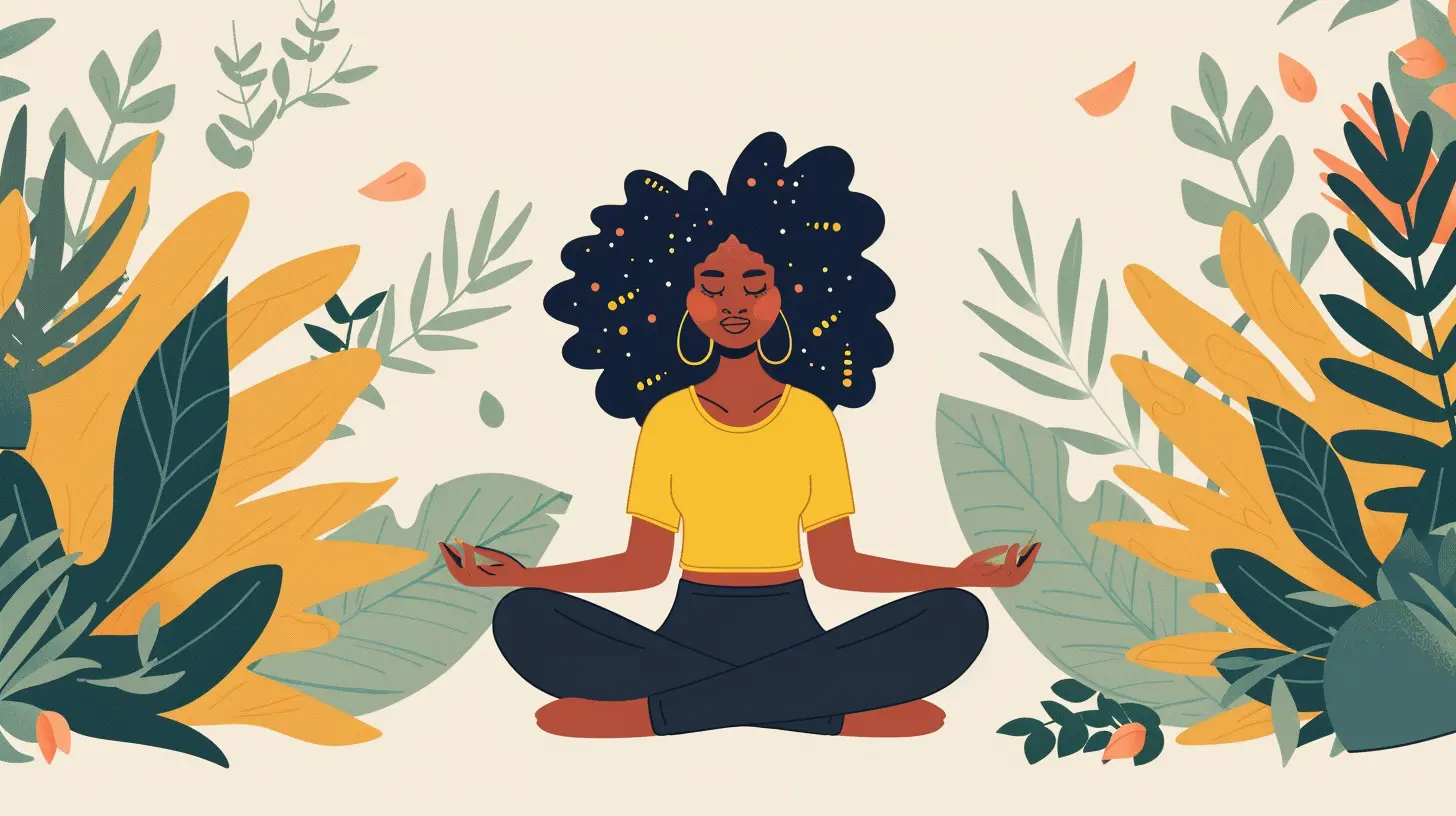Meditation for Better Sleep: Techniques to Calm Your Mind
23 August 2025
Hey there, struggling to get some good-quality shut-eye? Trust me, you’re not alone. In our ever-busy, always-connected world, sleep often feels like a luxury rather than a necessity. Tossing and turning, racing thoughts, and that never-ending to-do list can leave you staring at your ceiling for hours. Sound familiar? If so, let me introduce you to a sleep game-changer—meditation.
Meditation for better sleep isn’t just a trendy buzzword; it’s a tried and tested method to calm your mind, relax your body, and pave the way for deeper, uninterrupted rest. Stick with me, and I’ll walk you through what meditation can do for your sleep, why it works, and how to actually start meditating (without feeling awkward about it). 
Why Sleep Is So Important (And Why You’re Probably Not Getting Enough)
Let’s start with the basics: sleep is your body’s natural reset button. It repairs your muscles, recharges your brain, and even strengthens your immune system. On the flip side, lack of sleep can mess with your mood, memory, and overall health.But why is it so hard to fall asleep in the first place? Well, blame our modern lifestyle. Constant notifications, binge-watch marathons, and the stress of daily life keep our brains stuck in overdrive. If you’ve ever felt like your mind just won’t shut up when your head hits the pillow, you know what I mean.
That’s where meditation swoops in like a superhero. It helps quiet the mental chatter, slows your racing thoughts, and prepares your body and brain for rest. It’s like pressing the “Do Not Disturb” button for your mind. 
How Meditation Improves Sleep
Before diving into techniques, let’s talk about why meditation works so well for better sleep. Spoiler alert: it’s not magic, but it kind of feels like it once you experience it. Here are the key ways meditation helps you drift off peacefully:1. Reduces Stress and Anxiety
Stress is the biggest culprit behind sleepless nights, isn’t it? Whether it’s worrying about tomorrow’s deadlines or replaying an awkward conversation from five years ago, stress keeps you awake. Meditation helps you take a step back, observe those thoughts without judgment, and let them pass. Think of it as hitting the “pause” button on your internal chaos.2. Activates the Relaxation Response
Meditation triggers your parasympathetic nervous system, a.k.a. the “rest and digest” system. This calms your body, lowers your heart rate, and slows your breathing—basically, it tells your body it’s time to chill out and relax.3. Improves Sleep Quality
It’s not just about falling asleep but staying asleep. Meditation increases your body’s production of melatonin, the hormone responsible for regulating your sleep-wake cycle. The result? Deeper, more restorative sleep that leaves you feeling refreshed the next day.4. Helps Break the Insomnia Cycle
If you’ve ever experienced insomnia, you know how frustrating it is. The more you stress about not sleeping, the harder it becomes to fall asleep. Meditation breaks this vicious cycle by teaching you to approach sleep without pressure or expectation.
Meditation Techniques for Better Sleep
Alright, enough theory—let’s get to the good stuff. Below are some beginner-friendly meditation techniques you can use to calm your mind and prepare for a restful night. No fancy equipment or prior experience needed!1. Mindfulness Meditation
Mindfulness is all about being present in the moment. Instead of worrying about tomorrow or stressing over yesterday, you focus on what’s happening right now.- How to Do It:
Lie down in a comfortable position, close your eyes, and focus on your breathing. Feel the rise and fall of your chest with each breath. When your mind starts to wander (and it will—it’s normal), gently redirect your focus back to your breath.
- Why It Works:
This practice helps you disengage from unproductive spirals of thought and brings your attention to the present, calming your mind for sleep.
2. Body Scan Meditation
Think of this as a mental relaxation exercise for your entire body.- How to Do It:
Lie down and close your eyes. Starting from the top of your head, slowly bring your awareness to each part of your body—your forehead, your neck, your shoulders, and so on. As you move through each area, consciously release any tension you’re holding there.
- Why It Works:
This technique helps you identify and let go of physical tension that might be keeping you awake.
3. Guided Meditation
If sitting in silence feels daunting, guided meditation is a fantastic option.- How to Do It:
Use a meditation app like Headspace, Calm, or Insight Timer. Choose a guided sleep meditation that resonates with you. Typically, they’ll walk you through breathing exercises and visualization techniques.
- Why It Works:
Having someone guide you takes the pressure off figuring out what to do, making it easier to relax and let go.
4. Breathing Exercises
Sometimes, the simplest practices are the most effective. Breathing exercises are quick, easy, and incredibly calming.- How to Do It:
Try the 4-7-8 method. Inhale through your nose for 4 seconds, hold your breath for 7 seconds, and exhale slowly through your mouth for 8 seconds. Repeat this cycle several times.
- Why It Works:
It slows your heart rate and activates your body’s relaxation response, preparing you for sleep.
5. Visualization
Ever heard the phrase, “Don’t count sheep, imagine them”? Visualization is a bit like that, but better.- How to Do It:
Close your eyes and picture a calming scene, like a serene beach or a quiet forest. Imagine yourself there, feeling the textures, hearing the sounds, and smelling the scents.
- Why It Works:
This technique distracts your mind from stressors and helps create a sense of peace and tranquility. 
How to Build a Meditation Habit
Now, you might be thinking, “This sounds great, but how do I actually stick to it?” Good question. Building a meditation habit is like learning any new skill—it takes consistency. Here are some tips to help you get started:1. Start Small: Don’t overwhelm yourself by trying to meditate for 30 minutes right away. Begin with just 5–10 minutes a night and gradually increase the duration as you get more comfortable.
2. Create a Routine: Make meditation a part of your bedtime ritual. Brush your teeth, put on your PJs, and then meditate—it’ll signal to your brain that it’s time to wind down.
3. Be Patient with Yourself: Meditation isn’t about “turning your brain off” (spoiler: that’s impossible). It’s about observing your thoughts and letting them pass without getting caught up in them.
4. Use Apps or Resources: If going solo feels hard, don’t hesitate to get some help. Meditation apps, YouTube videos, or even podcasts can make the process easier and more enjoyable.
5. Stay Consistent: The more you practice, the better the results. Even if some nights feel “meh,” keep at it. Over time, your mind and body will get the memo.
Final Thoughts
Meditation for better sleep is more than just a relaxation tool—it’s a lifestyle change. By learning to calm your mind and let go of stress, you’re not just improving your sleep; you’re enhancing your overall well-being. So, if you’re ready to swap those sleepless nights for peaceful slumbers, give meditation a shot.And remember, it’s okay if it feels awkward or “not working” at first. Just like learning to ride a bike, it gets easier with practice. Before long, you’ll be snoozing like a pro, waking up refreshed, and wondering why you didn’t try this sooner.
Sweet dreams and happy meditating!
all images in this post were generated using AI tools
Category:
MeditationAuthor:

Sophia Wyatt
Discussion
rate this article
1 comments
Mandy Vance
Embrace meditation for restful sleep; it's a powerful tool to soothe your mind and rejuvenate your spirit!
August 28, 2025 at 3:08 PM

Sophia Wyatt
Thank you! Meditation truly is a transformative practice for enhancing sleep quality and promoting inner peace.


